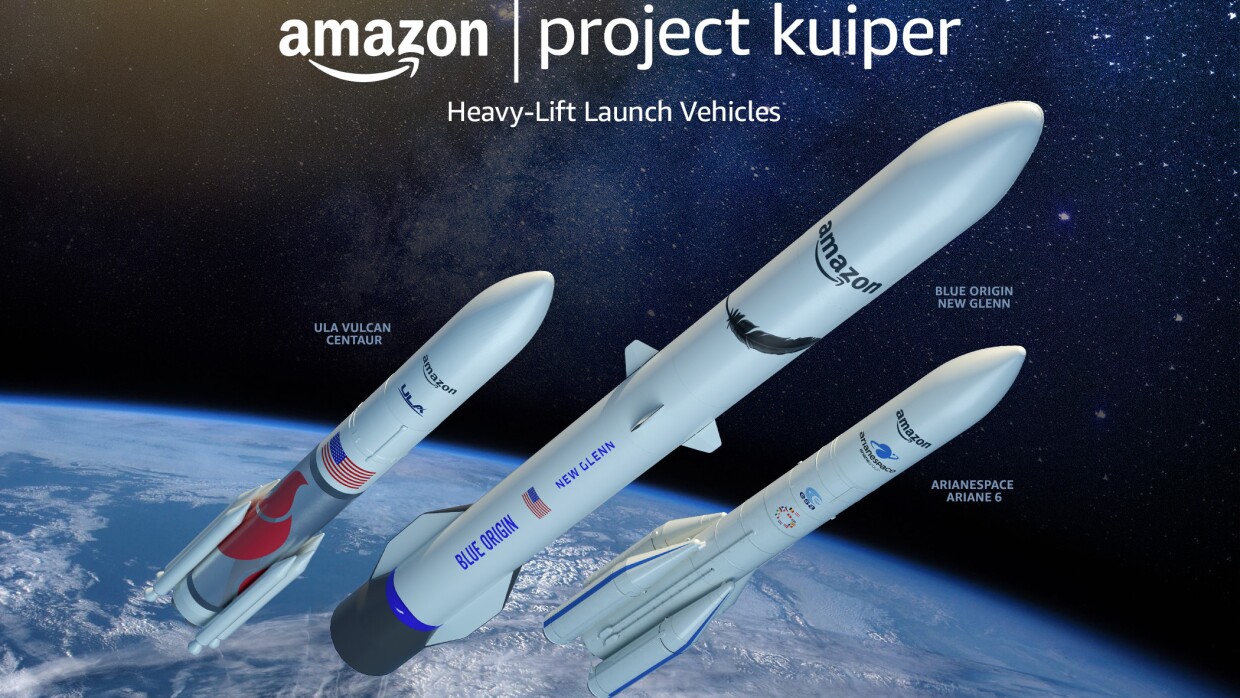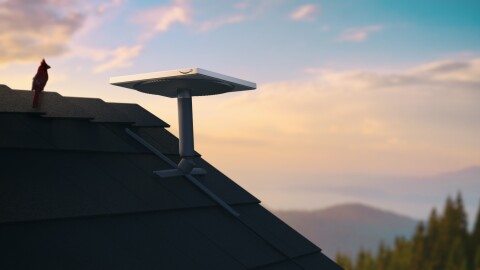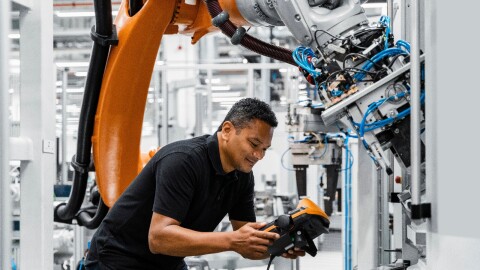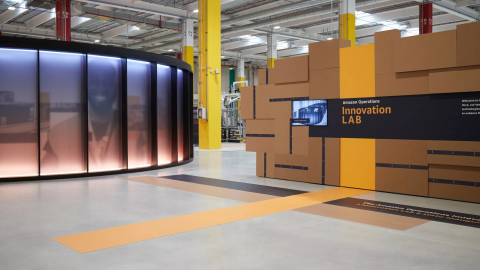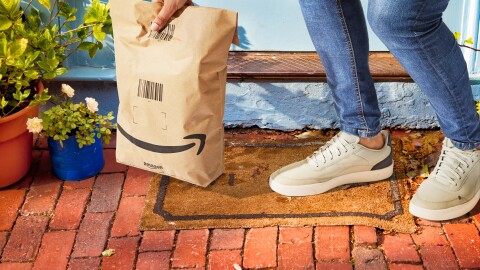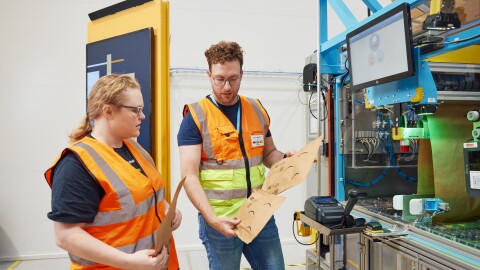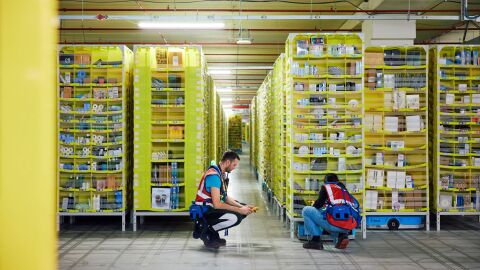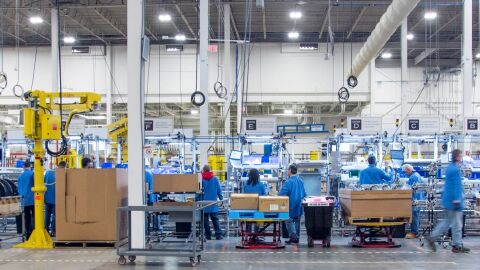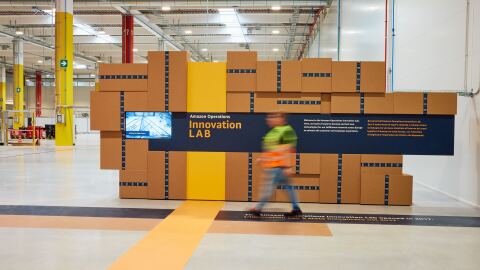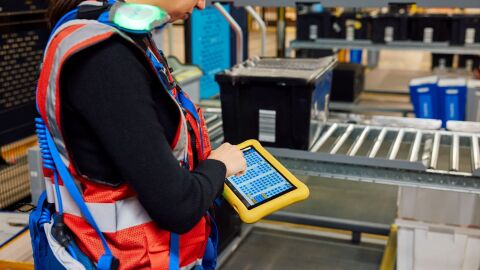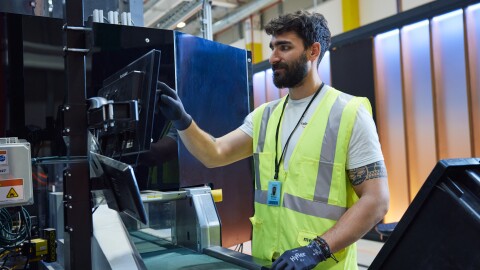Amazon continues to hit milestone after milestone in every aspect of Project Kuiper, a low Earth orbit (LEO) satellite system designed to provide fast, affordable broadband to unserved and underserved communities around the world. We’re excited to announce we’ve secured up to 83 launches from Arianespace, Blue Origin, and United Launch Alliance, providing heavy-lift capacity to deploy the majority of our initial 3,236-satellite constellation. These deals represent the largest commercial procurement of launch services in history, and our investments will support hundreds of suppliers and thousands of highly skilled jobs in the space industry across the United State and Europe.
Preparing to delight customers around the world
As part of Amazon’s family of products and services, Project Kuiper is working backwards from the customer to deliver high-speed, low-latency broadband service at an affordable price.
The Kuiper System includes: our advanced LEO satellites; small, affordable customer terminals; and a secure, resilient ground-based communications network.
Project Kuiper will leverage Amazon’s global logistics and operations footprint to provide excellent customer service, as well as Amazon Web Services’ (AWS) networking and infrastructure to serve a diverse, global customer base. We’ll also apply Amazon’s experience producing low-cost devices and services like Echo and Kindle to deliver broadband service at an affordable, accessible price for customers.
Once deployed, the Kuiper System will serve individual households, as well as schools, hospitals, businesses, disaster relief efforts, government agencies, and other organizations operating in places without reliable broadband.
A global launch partnership
Our launch partners will provide us with heavy-lift launch services over a five-year period. Project Kuiper satellites will launch on Arianespace’s Ariane 6 rocket out of the Guiana Space Center in French Guiana, and Blue Origin’s New Glenn and ULA’s Vulcan Centaur rockets out of Cape Canaveral Space Force Station in Florida.
“These launch agreements reflect our incredible belief in Project Kuiper, and we’re proud to be working with such an impressive lineup of partners to deliver on our mission,” said Dave Limp, Senior Vice President for Amazon Devices & Services. “Securing launch capacity from multiple providers reduces scheduling risk and helps us secure competitive, long-term pricing that we can pass on to Project Kuiper customers as cost savings.”
Our new agreements are in addition to our existing deal for nine launches on Atlas V vehicles from ULA to help deploy the Project Kuiper constellation, as well as two launches with ABL Space Systems to deploy the prototype KuiperSat-1 and KuiperSat-2 satellites on ULA’s RS1 rocket.
Scalable technology to dispense satellites
Launch is just one piece of getting our satellites safely into space. We also need a dispenser system to securely deploy satellites at the correct altitudes for insertion into orbit. We’ve completed an agreement with Switzerland’s Beyond Gravity (formerly RUAG Space) to build the low-cost, versatile satellite dispensers that will deploy the Kuiper constellation. Beyond Gravity’s dispensers can easily scale up and down in capacity to fit the different rockets we’re using.
The Project Kuiper contract is one of the largest orders in Beyond Gravity’s history. The company is doubling its production capacity as a result, opening a second production facility in Linköping, Sweden, where it will create dozens of jobs.
Bolstering the commercial space industry
Our investments in Project Kuiper will also benefit the wider launch services industry, accelerating the pace of innovation, improving launch infrastructure, and supporting hundreds of suppliers and thousands of highly skilled jobs in 49 U.S. states and 13 European countries.
For instance, in addition to launch services, our contract with ULA also covers production and launch infrastructure to support more launches, timed closer together, at the Cape Canaveral Space Force Station. That work includes a new, dedicated version of the Vulcan Launch Platform. ULA is also making investments in their Spaceflight Processing & Operations Center to deliver a second ULA facility capable of full vehicle processing, with two parallel “launch lanes” for high-cadence operations.
“This agreement marks the beginning of an exciting new era for ULA and for the entire U.S. launch industry,” said Tory Bruno, President and CEO of ULA. “Our work together will support hundreds of jobs, especially in places like Alabama, Colorado, and Florida. What’s more, Amazon’s investments in launch infrastructure and capability upgrades will benefit both commercial and government customers operating out of the Cape.”
There are now more than 1,000 people working on the Project Kuiper program as we prepare to serve tens of millions of customers around the world. Learn more about what we’re doing in this video and in our press release.


